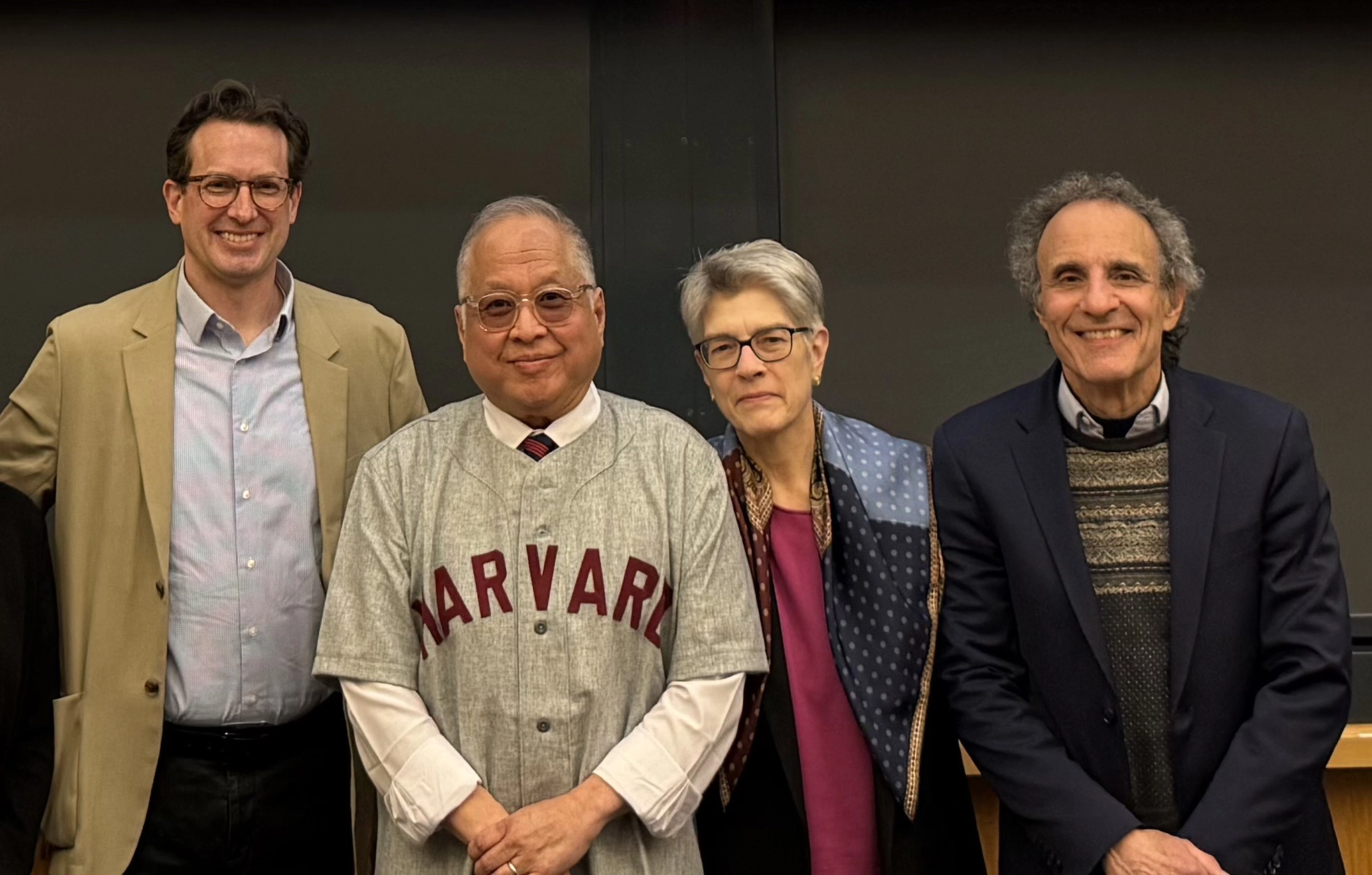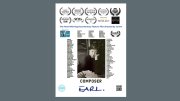In the opening moments of the documentary Earl., the film’s subject is described by his friend, the legendary violinist Itzhak Perlman, as “a wonderful, prolific, imaginative composer—whose works are not often heard these days.” This film seeks to change that, sharing with a new generation the life and music of composer Earl Kim, who was Harvard’s Ditson professor of music from 1967 to 1990.
Directed by Ty Kim, M.B.A. ’00 (no relation to the composer), Earl. blends archival conversations with Kim, interviews with family and former students, and striking performances of his compositions—works that the New York Times once called “austere and dazzling.” Those performances are among the highlights of the film—though they weren’t easy to record, performers share: “His music is difficult, like Schubert’s,” former student Scott Yoo ’93 says in the film. “You feel kind of naked when you’re playing it. There’s really nowhere to hide.”

The film traces the life of Kim, who was born in 1920 to Korean immigrants working as day laborers in Dinuba, California. A church pianist recognized his talent and gave him free lessons; from there, he went on to study at City College Los Angeles, U.C. Berkeley, and U.C.L.A. with twentieth-century composers including Arnold Schoenberg, Ernest Bloch, and Roger Sessions. His musical career was interrupted when he was drafted to serve in World War II—an experience that shaped his life and work. The day after the American nuclear bombing of Nagasaki in August 1945, Kim insisted on flying over the city to witness the devastation. Several friends recalled the image that stuck with him: a single truck driving through the ruins—a sign of human life and striving amid destruction.
“He had nightmares about what he saw,” recalls Paul Salerni, a music professor at Lehigh University who was a graduate student of Kim’s at Harvard. That spurred him to political action: after the war, as a young instructor at Berkeley, Kim was fired for refusing to sign a loyalty oath that required faculty to affirm they were not members of the Communist Party. Decades later, in 1981, he and his wife Martha Kim Potter co-founded Musicians Against Nuclear Arms.
The experience also deeply influenced Kim’s music, which reckoned with themes of loss, fragility, and survival. Throughout his career, he often explored these ideas through the work of Samuel Beckett, traveling to Paris in 1965 to ask permission to set Beckett’s plays to music. (Kim became one of the few granted this privilege.) One of the film’s most striking sequences features a performance of Footfalls, Kim’s spare, hypnotic interpretation of Beckett’s one-act play.
After the war, Kim taught at Berkeley and Princeton before finally landing at Harvard in 1967. Here, he spent decades as a slow, methodical composer and an exacting but beloved teacher. In 1983, he completed the song cycle “Now and Then,” with lyrics drawn from works by Samuel Beckett, Anton Chekhov, and W.B. Yeats. In a description accompanying the work, Kim said it encompassed “a range of poetic images dealing with the death of friends, the innocence and vulnerability of daffodils, the loneliness of one’s final moment, and Chekhov’s prophetic image of an earth which for thousands of years has borne no living creature.” Salerni shares in the film that the piece was akin to the truck Kim saw in Nagasaki—a testament to perseverance amid devastation. The film includes a performance by the Sejong Soloists, a chamber ensemble, of this haunting work.
It was also during his time at Harvard that Kim collaborated with Itzhak Perlman, who premiered his Violin Concerto in 1979 with the New York Philharmonic. He also explored more experimental artforms, working with Hooker professor of visual arts Alfred Guzzetti on a five-minute black-and-white film included in his four-movement work Exercises en Route. Kim retired in 1990 and died of lung cancer in 1998.
The film, currently on the festival circuit, won Best Biographical Feature and Best Documentary Director at the Cannes World Film Festival, with advanced screenings scheduled nationwide and internationally through the fall. After a March 26 screening at Harvard, scholar and theater director Laura Johnson—who first staged Kim’s music-theater pieces—reflected on his legacy by quoting Beckett’s famous line from The Unnamable: “I can’t go on. I’ll go on.” “Earl didn’t go on, but his music goes on,” she said. “We continue to perform that music, others have continued to perform that music, and the great joy and hope would be that, as more people learn about his music, they too will want to make it go on.”









